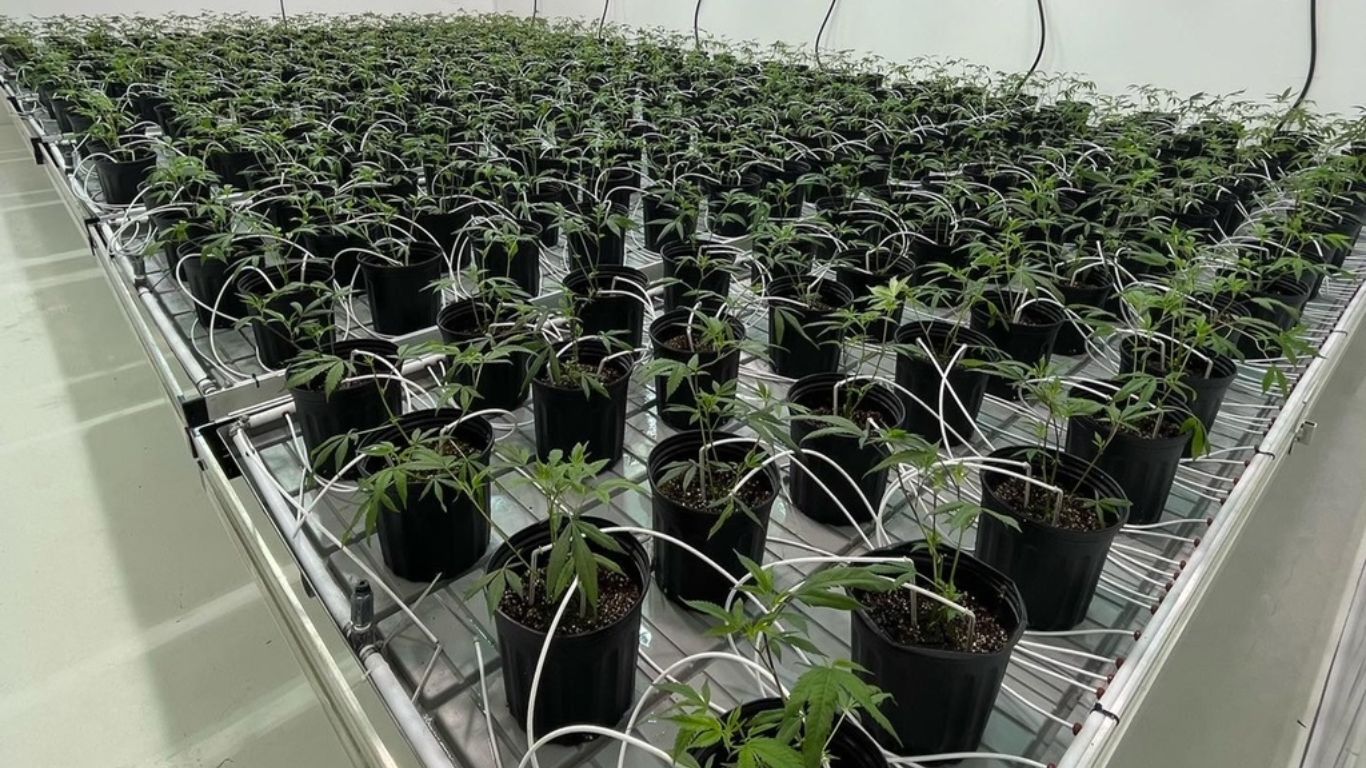
Summer is just around the corner, with the long weekend fast approaching. On StratCann this week we had more coverage of Manitoba retailers who are now seeking retroactive rebates for that province’s recently repealed six percent Social Responsibility Fee, as well as a story about producers who say the regulator needs to overhaul its process for vetting new products coming to market, and an in-depth look at cannabis as a promising treatment for women’s health.
Health Canada made a few updates this week to language in a public advisory from 2022 about “copycat” edibles—those legacy market edibles with, uh, “creative” names like ‘Froot Loopz’, ‘Cheetos Puffs’, or ‘Double Stuf Stoneo’. “Hospitals have seen an increase in visits to the emergency room and poison centres have seen an increase in calls,” the advisory noted. Copycat edibles like these tend to be the culprit in many of those accidental cannabis ingestion stories.
Ex-Canopy capo Bruce Linton was featured on the first episode of the Globe and Mail’s new Better For It podcast this week—a business podcast focusing on Canadian entrepreneurs and their failure stories. “What led to one of the most public business failures in recent memory? Bruce talks about how he got fired, why the cannabis sector hasn’t delivered on its colossal promise, and what’s next for him,” the podcast teases. For those still stuck in 2018, it’s a must-hear!
Canadian Underwriter—a trade publication from the insurance industry—published a story on the cannabis insurance sector this week, with comments from Tyson Peel and Rami El-Cheikh, both insurance brokers who work with the cannabis sector. With more insolvencies expected in the coming years, the insurance industry appears to be bracing for issues ahead.
Ontario police have charged a driver with drug trafficking after 416 cannabis plants were discovered last weekend in the back of a truck. A 59-year-old man from Markham has been charged after police nabbed him outside of Burlington, ON.
A new epidemiological study out of the University of Copenhagen identified a potential link between cannabis and schizophrenia, especially among young men. The study looked at nearly 7 million medical records, concluding that one-third of the total number of [schizophrenia] diagnoses could have been prevented if men aged 21 to 30 had not developed problematic cannabis use. Others have cautioned against drawing too many conclusions.
The Trillium’s Patrick Cain spoke to a couple of big cannabis names—Matt Maurer and Deepak Anand—about plateauing sales in Ontario, which is following other high-population provinces in seeing cannabis sales flatten out, suggesting that the market has reached “its natural final size.” Both still see untapped potential—but said that it would take regulatory changes to kickstart growth again.
Out west, some 40 retailers in Saskatchewan and British Columbia are planning to kick off the “Weed Pool Cannabis Cooperative,” which is launching “imminently,” reports the Kelowna Daily Courier. The Weed Pool business will function as a distributor for other independent retail stores, taking advantage of BC’s direct delivery program and offering volume pricing advantages for buyers looking to stock craft product. “The culture and the community of the cooperative model really make it special,” said CEO Brett Wells. “We want to see the independents thrive.”
A micro cultivator in Merritt, BC recently signed a deal with Manitoba’s Delta 9 Cannabis to provide them with a dozen of their grow pods. The Manitoba-based producer and retailer has partnered with a handful of micros in Canada, providing them with their grow pods, as well as assistance with licensing and operations, as well as distribution and sales.
Village Farms reported its first quarter financial results this week, recording a $6.1-million pre-tax loss. The second-largest company in terms of market share also took aim at the regulator: “The excessive, flat per-gram excise tax is handcuffing the very businesses that can ensure that this historical piece of Canadian legislation is a long-term success,” they wrote.
On the retail side, Nova Cannabis released their Q1 2023 figures this week, showing a 20.8 percent increase in revenues, and only a $500,000 net loss. On their recent closure of a deal with SNDL, they said that the “completion of the Nova Reorganization is expected to create a well-capitalized cannabis retail platform through a vertical integration model leveraging SNDL’s upstream and midstream capabilities.”
TerrAscend Corp released its first quarter 2023 report, with net revenue of $69.4 million. GAAP Net loss from continuing operations in the first quarter of 2023 was $19.2 million, compared to $2.0 million in the fourth quarter of 2022 and $13.8 million in the first quarter of 2022. The increase in net loss relates to the finalization of the acquisition of Gage, which was completed in March.
Another urban Indigenous-owned store, Medicine Wheel Natural Healing, opened this week in Ottawa as Indigenous retailers continue to prod at the “grey area” in jurisdiction. Dignitaries within the sovereign cannabis movement—Chief Del Riley, lawyer Jack Lloyd, store owner Anthony Tenasco, and others were on hand for a panel discussion to open the new store.
Internationally, CNBC covered Cannabis Europa in London last week and the interest in legalization from several countries, but resistance from the EU.
And finally, in cannabis-adjacent news, a Fun Guyz psilocybin mushroom store has popped up in London, ON this week, the CBC reports. Jacob Shelley, a law professor at Western University, compared it to the early days of cannabis shops. “We see the playbook has already been kind of played out with cannabis, right?” he said.












